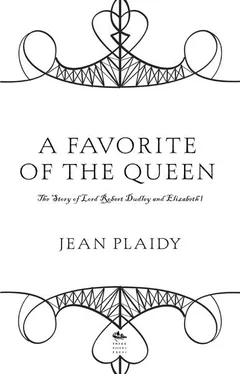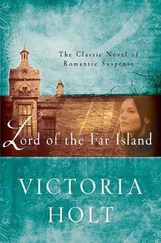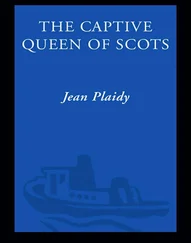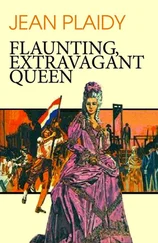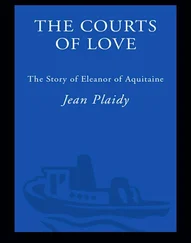Виктория Холт - A Favorite of the Queen - The Story of Lord Robert Dudley and Elizabeth 1
Здесь есть возможность читать онлайн «Виктория Холт - A Favorite of the Queen - The Story of Lord Robert Dudley and Elizabeth 1» весь текст электронной книги совершенно бесплатно (целиком полную версию без сокращений). В некоторых случаях можно слушать аудио, скачать через торрент в формате fb2 и присутствует краткое содержание. Жанр: Исторические любовные романы, на английском языке. Описание произведения, (предисловие) а так же отзывы посетителей доступны на портале библиотеки ЛибКат.
- Название:A Favorite of the Queen: The Story of Lord Robert Dudley and Elizabeth 1
- Автор:
- Жанр:
- Год:неизвестен
- ISBN:нет данных
- Рейтинг книги:5 / 5. Голосов: 1
-
Избранное:Добавить в избранное
- Отзывы:
-
Ваша оценка:
- 100
- 1
- 2
- 3
- 4
- 5
A Favorite of the Queen: The Story of Lord Robert Dudley and Elizabeth 1: краткое содержание, описание и аннотация
Предлагаем к чтению аннотацию, описание, краткое содержание или предисловие (зависит от того, что написал сам автор книги «A Favorite of the Queen: The Story of Lord Robert Dudley and Elizabeth 1»). Если вы не нашли необходимую информацию о книге — напишите в комментариях, мы постараемся отыскать её.
A Favorite of the Queen: The Story of Lord Robert Dudley and Elizabeth 1 — читать онлайн бесплатно полную книгу (весь текст) целиком
Ниже представлен текст книги, разбитый по страницам. Система сохранения места последней прочитанной страницы, позволяет с удобством читать онлайн бесплатно книгу «A Favorite of the Queen: The Story of Lord Robert Dudley and Elizabeth 1», без необходимости каждый раз заново искать на чём Вы остановились. Поставьте закладку, и сможете в любой момент перейти на страницу, на которой закончили чтение.
Интервал:
Закладка:
In the games he played, he was always the leader. Already he was Jane’s hero. Sir Richard was pleased as he watched the growing affection between John Dudley and Jane Guildford.
Sir Richard’s position at Court had brought him into contact with the King, who was as yet a careless boy in love with pleasure, yet a boy with an awakening conscience. Sir Richard thought that the King’s conscience might play its part in the future of his young protégé.
Henry still frowned at the name of Dudley. He was well aware that the execution of his father’s favorite and adviser had been carried out for the sake of his, Henry’s, popularity. Henry had not yet come to terms with his conscience. It could not yet persuade him, as it would later, that Dudley and Empson had deserved their fate, so the very mention of the name Dudley brought discomfort to him. But when Sir Richard subtly begged royal permission to ask the Parliament for the repeal of the attainder against the Dudleys, Henry was almost eager to give that permission.
Let the boy inherit his father’s wealth. The King did not want it; he had that vast accumulation of riches, which his own father had amassed through his thrifty reign, to squander. Yes, let the attainder be repealed. Let the son of Edmund Dudley have his father’s riches. The King could then feel happier when the names of Dudley and Empson were mentioned; he could put aside the thought that those two men had been executed to placate the people from whom much of his father’s wealth had been extorted.
The first step was therefore taken. John was no longer penniless. He was a rich parti for young Jane; although he could not yet go to Court.
Sir Richard came home full of excitement. “See what I have done for you, John!” he cried. “Now it will be your turn.”
“Yes, now it is my turn,” said the solemn boy.
Jane watched them gravely, wondering what this was all about. But there was no need to explain such matters to Jane. She was happy because her father was happy; and she saw in John that deep brooding concentration which she respected although she could not share it.
As they went out to the stables together she said: “Something good has happened, has it not?”
He nodded but he said no more then for he did not wish the grooms to hear.
As they rode across the clover-starred meadows, he said: “I am no longer without means. My father’s fortune is to be returned to my family.”
“John … does it mean you will go away?”
He smiled at the fear in her eyes. “If I went away, I should come back. You know, do you not, Jane, that when we are old enough we are to marry?”
“Yes, John,” she answered.
“You will be happy then, Jane. So shall I!”
He was sure of her contentment—as sure as he was that one day he would be a leader of men. It did not occur to her that this might be arrogance on his part; if he was arrogant, then, in her eyes, arrogance was a virtue.
As they cantered across the fields she was thinking of their future, of their marriage and the children they would have.
He too was thinking of the future, but not of his life with Jane. Jane’s love was something he took for granted. The thunder of horses’ hoofs seemed to say to him “Dudley—Tudor!”
Those name implied ambition—the rise from obscurity to greatness.
They were married when John was nineteen and Jane had just reached her eighteenth birthday. They continued to live quietly at Sir Richard’s house—so near Court and yet not of it.
The King had changed; he was no longer a careless boy; his conscience had begun alternately to torment and soothe him, and it now assured him that Sir Edmund Dudley had been a traitor who had imposed great hardship on the people. He had deserved his fate, and what, this King could ask himself, would his subjects think of a monarch who honored the descendants of such a man!
No, the King would show no favor to a Dudley; nor could he receive at Court the son of a traitor.
Jane’s first son was born; and John, who felt that the shame and humiliation of that day on Tower Hill were branded on him so deeply that only the dazzling accoutrements of dignity and great power could distract attention from the defect, determined that if he could not win favor at Court he would seek it on the field of battle.
Jane was tearful at the prospect of his departure for France.
“Why cannot you stay here?” she asked. “What do you want of fame? We have all we need. We have our little son, your namesake, and we will have more children.”
“Aye, we will have more,” said John. Of course he would have more. Children—even girls—were useful to men of power, for through them links with the great and rich were forged. Jane had her task; he had his. She must provide him with many sons and a few daughters; but he must bring power and fame to the name of Dudley.
He distinguished himself in the service of Charles Brandon, Duke of Suffolk, who had married the King’s sister Mary. John came back from the battlefield Sir John Dudley.
An important step forward had been taken.
Quickly the years passed whilst ambition smoldered. Jane was fulfilling her task more successfully than John fulfilled his.
She had given him four sons and three daughters; and she was about to bear another child.
Jane remembered the day long afterward. She was happy enough in the garden of their Chelsea manor house with the river lapping at its edge. She was thinking of her beloved children—and wondering whether the one she now carried would be a girl or a boy.
How blessed she was in her four handsome sons!
There were many rumors about the King at this time. How he would have envied her her four if he had seen them! It was said that his eyes first lighted up, then smoldered when he looked at other men’s sons.
Such excitements there had been of late! Such rumors! Would the King really take Anne Boleyn to wife? Would he make her his Queen? Jane had seen the lovely Anne pass along the river in her barge. The King was growing impatient, it was said; the air was thick with rumor; and here was little Jane Dudley, peacefully awaiting the birth of yet another child, living remote from the Court, though so near it—peaceful and contented with her family about her.
Of course she would have liked John to have his heart’s desire—a share in the affairs of the Court. Sometimes he frightened her. He seemed so fierce in his determination. She would watch him pacing their chamber, pacing the lawns, his eyes narrowing as he looked without seeing it at a barge on the river. Then she would be fiercely glad that he was outside Court matters. She often thought of that great man Cardinal Wolsey who had met his doom and died of a broken heart. She would not have her John become such a one as the great Cardinal. But what a ridiculous comparison! Her John and the great Cardinal! But Wolsey had been humble once, and so had John’s father.
She wished that he were not a Dudley, that he had some happier background, someone who had a humble father who had not risen to greatness but who had died peacefully in his bed.
And that day John came home in great excitement.
The King had decided to forgive him for being his father’s son. It was more than twenty years since Henry had beheaded Edmund Dudley; and after twenty years, the King evidently thought, he could forgive a man for reminding him of his own guilt.
Jane watched John alight from his barge, saw him hasten across the turf crying her name; and never had she heard his voice so joyous.
“Jane! Dear wife, I am appointed Master of the King’s Armory.”
She felt her heart fluttering uncomfortably. She must appear to be glad. She always took her cue from him; she must be what he expected her to be.
Читать дальшеИнтервал:
Закладка:
Похожие книги на «A Favorite of the Queen: The Story of Lord Robert Dudley and Elizabeth 1»
Представляем Вашему вниманию похожие книги на «A Favorite of the Queen: The Story of Lord Robert Dudley and Elizabeth 1» списком для выбора. Мы отобрали схожую по названию и смыслу литературу в надежде предоставить читателям больше вариантов отыскать новые, интересные, ещё непрочитанные произведения.
Обсуждение, отзывы о книге «A Favorite of the Queen: The Story of Lord Robert Dudley and Elizabeth 1» и просто собственные мнения читателей. Оставьте ваши комментарии, напишите, что Вы думаете о произведении, его смысле или главных героях. Укажите что конкретно понравилось, а что нет, и почему Вы так считаете.
